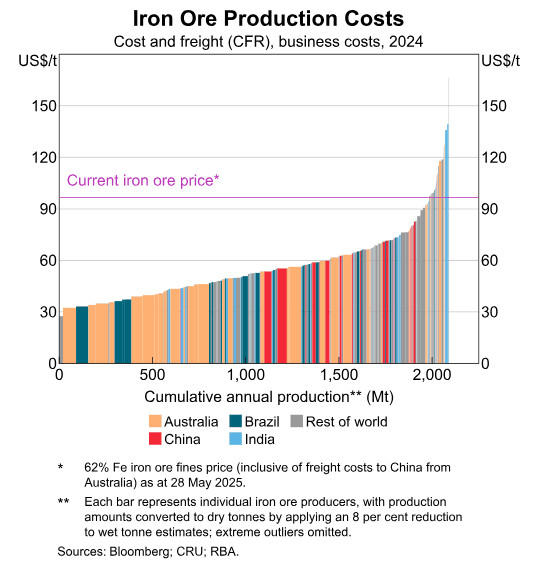MNI BRIEF: Exports To Weather Trade Volatility - RBA's Hunter
Australia’s bulk commodities exporters should weather global trade volatility in the short term, assuming Chinese authorities support their economy through fiscal stimulus, Reserve Bank of Australia Assistant Governor Sarah Hunter told an industry association Tuesday.
“Australia’s resource export volumes are less sensitive to movements in global demand than other exports as we are a relatively low-cost producer of bulk commodities like iron ore,” she noted.

However, Hunter acknowledged that the global environment is increasingly unpredictable, with significant uncertainty around how it will affect the domestic economy.
While the precise transmission is unclear, the RBA has identified key channels and used scenario analysis to guide its forecasts that show slower economic growth, a slightly weaker labour market, and some dampening in tradable goods prices. As a result, inflation is now forecast to settle a little lower than projected in February, around the midpoint of the 2-3% target range, Hunter said, pointing to May’s Statement on Monetary Policy.
These forecasts rest on several assumptions, including the evolution of tariff policies, global policy responses, and the impact of trade diversion or supply chain disruptions, she continued, noting these risks drove May’s 25bp cash rate reduction to 3.85%. (See MNI RBA WATCH: Board's Dovish Turn Included Debate Of 50bp Cut)